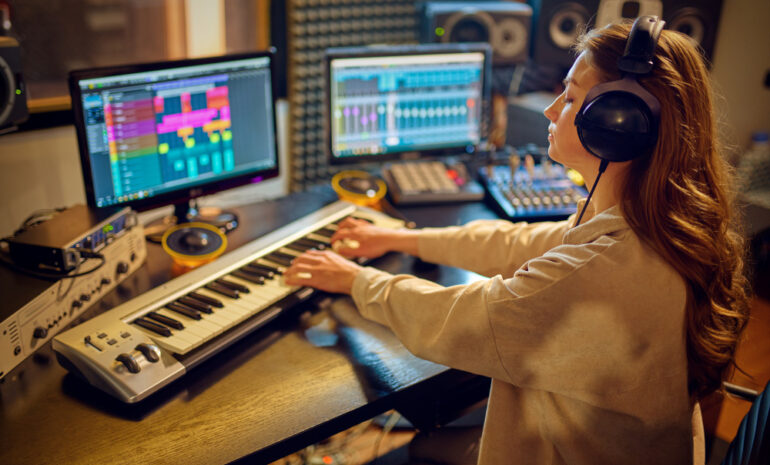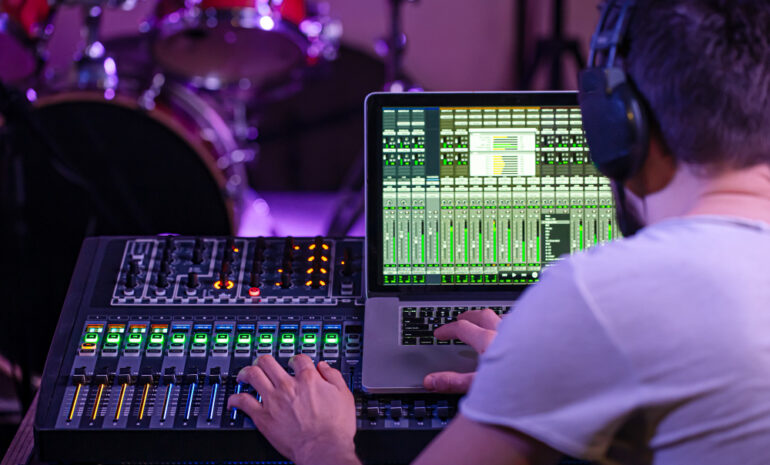As a music composer, selecting the right Digital Audio Workstation (DAW) is essential to the success of your projects. The DAW you choose will determine the quality of your recordings, ease of use, and overall efficiency of your workflow. With so many options available in the market, it can be overwhelming to choose the right one. In this blog, we will discuss how to select your DAW as a music composer.
1. Determine Your Budget
The first step in selecting a DAW is to determine your budget. DAWs can range from free to thousands of dollars, so it's important to have a clear idea of how much you’re willing to spend. Keep in mind that the more expensive DAWs often come with advanced features and tools, but that doesn’t necessarily mean they are the best fit for your needs.
2. Consider Your Workflow
Your workflow as a music composer will play a significant role in determining the right DAW for you. Consider your preferred method of creating music, whether it’s recording live instruments, MIDI sequencing, or a combination of both. Look for a DAW that supports your preferred workflow and offers tools and features that streamline your creative process.
3. Compatibility with Your Hardware and Plugins
Ensure that the DAW you select is compatible with your hardware and plugins. For instance, if you use a particular MIDI controller or audio interface, ensure that the DAW you select supports it. Similarly, if you have favorite plugins that you use in your workflow, check that the DAW supports them. Compatibility issues can be a significant roadblock to your creative process, so ensure that the DAW you select works seamlessly with your hardware and software.
4. Look for User-Friendly Interfaces
User-friendliness is an essential factor in selecting a DAW. The interface should be intuitive and easy to use, allowing you to focus on creating music rather than navigating the software. Look for a DAW that provides a customizable interface that suits your workflow and makes it easy to access the tools and features you use most frequently.
5. Evaluate the Quality of Audio Processing
The quality of audio processing is a crucial factor to consider when selecting a DAW. The DAW should offer high-quality audio processing capabilities and ensure that your recordings sound professional. Look for a DAW that supports high-quality audio formats and offers tools for editing and mixing your recordings.
6. Consider the Support and Updates
Ensure that the DAW you select offers support and regular updates. The support team should be responsive knowledgeable, and able to assist you with any issues you encounter. Additionally, the DAW should offer regular updates that fix bugs, add new features, and improve performance.
7. Test the DAW before Purchasing
Before making a final decision, it & is essential to test the DAW before purchasing it. Most DAWs offer free trials, allowing you to explore the software’s features and capabilities. Use this time to test the DAW user interface, workflow, and compatibility with your hardware and plugins. Additionally, create a test project to evaluate the DAW audio processing capabilities and overall quality of the sound.
In conclusion, selecting the right DAW as a music composer is crucial to the success of your projects. Consider your budget, workflow, compatibility with hardware and plugins, user-
friendliness, quality of audio processing, support, and updates. Test the DAW before purchasing it to ensure that it suits your needs and enhances your creative process. By following these tips, you can select the right DAW for your music production needs and create professional-quality music.


